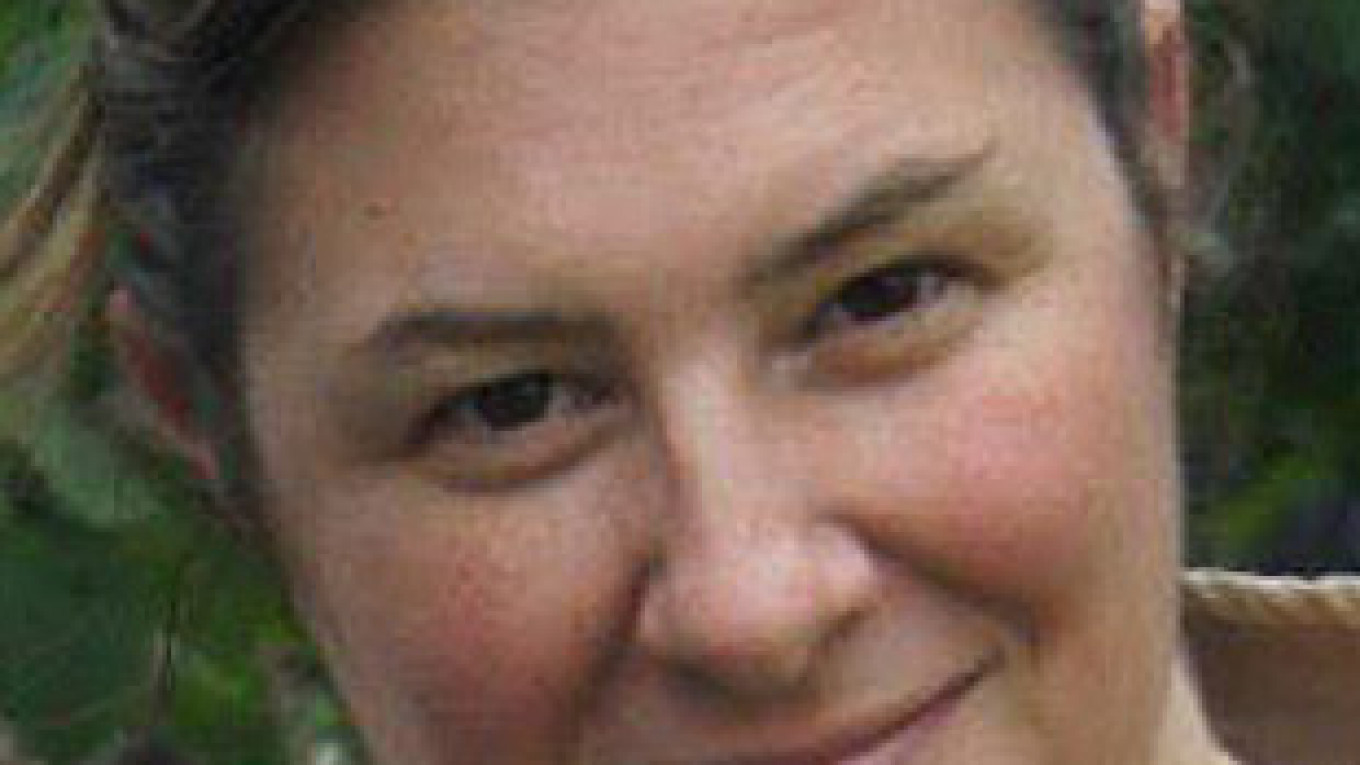Melissa Akin thrived as a business reporter in the mini-boom that followed the 1998 financial crisis in Russia.
The Moscow Times' business columns in those days were full of stories of established companies struggling to cope, while new companies were seeking out opportunities as imports became too expensive for most Russians to buy.
Not all companies were playing fair. Akin had a good nose for sniffing out something not quite right and used her journalistic professionalism to dig out the truth.
Akin delved deep and put her considerable talents into explaining often convoluted relations between banking and politics. She followed the money to show who were the winners and losers ?— mostly small depositors and investors.
Her analyses showed both her love of Russia and that she understood the big picture. She was also an enthusiast for the wave of mobile technologies that were being taken up by the masses after the 1998 crisis.
Akin and her partner, Moscow Times web editor Peter van Dyk, led the pack in their use of cellphones at a time when many in Russia were so afraid of the cost they would communicate in bursts of 10 seconds. The mobile networks had declared that such short calls would be free of charge.
She wrote stories about the then-new wireless application protocol (WAP) and how Russian websites were using it. She followed the moves of the burgeoning ".ru" domain.
Akin's warm personality helped her build up a list of knowledgeable contacts who could quickly steer her in the right direction on a business story, essential in those fast-changing times when things were not always what they seemed at first glance.
She had many Russian friends and was also always interested in what other staff were up to both professionally and privately.
Van Dyk and Akin saw themselves as having a long-term future in Russia. They even built an attractive izba [traditional log house] in the Moscow region, to which I was lucky to be invited, which they kept even when they were no longer permanently living in Moscow.
A popular staff member who usually had a broad smile on her face, Akin was sorely missed when she moved on to Reuters.
Robin Munro is a former business editor at The Moscow Times.
I met Melissa in 1995 as a hard-working, curious and cheerful intern at the Christian Science Monitor's Moscow bureau when I worked there as assistant to Peter Ford, a journalist with a great talent for tutoring future reporters. Later we worked together at The Moscow Times. Melissa was such a great presence in our journalistic world, such a wonderful personality and friend that it is truly unfathomable to realize that I will never run into her at some presser or in the street.
Andrei Zolotov is a former senior reporter at The Moscow Times.
I am sorry to write this, and in this way, but my wonderful, beloved Melissa passed away on Sunday after a typically fierce battle with cancer. She refused to yield anything until the very end, when she passed peacefully in our house in Rickmansworth with her mom comforting her. She will be missed terribly by everyone who knew and loved her, and especially by her boys, who she hated to leave more than anything.
Peter van Dyk is a former web editor at The Moscow Times and Melissa Akin's husband. This comment is from his Facebook page.
Melissa Akin was a business reporter at The Moscow Times from 1995 to 2000, before joining Reuters. She passed away on Sunday.
A Message from The Moscow Times:
Dear readers,
We are facing unprecedented challenges. Russia's Prosecutor General's Office has designated The Moscow Times as an "undesirable" organization, criminalizing our work and putting our staff at risk of prosecution. This follows our earlier unjust labeling as a "foreign agent."
These actions are direct attempts to silence independent journalism in Russia. The authorities claim our work "discredits the decisions of the Russian leadership." We see things differently: we strive to provide accurate, unbiased reporting on Russia.
We, the journalists of The Moscow Times, refuse to be silenced. But to continue our work, we need your help.
Your support, no matter how small, makes a world of difference. If you can, please support us monthly starting from just $2. It's quick to set up, and every contribution makes a significant impact.
By supporting The Moscow Times, you're defending open, independent journalism in the face of repression. Thank you for standing with us.
Remind me later.


